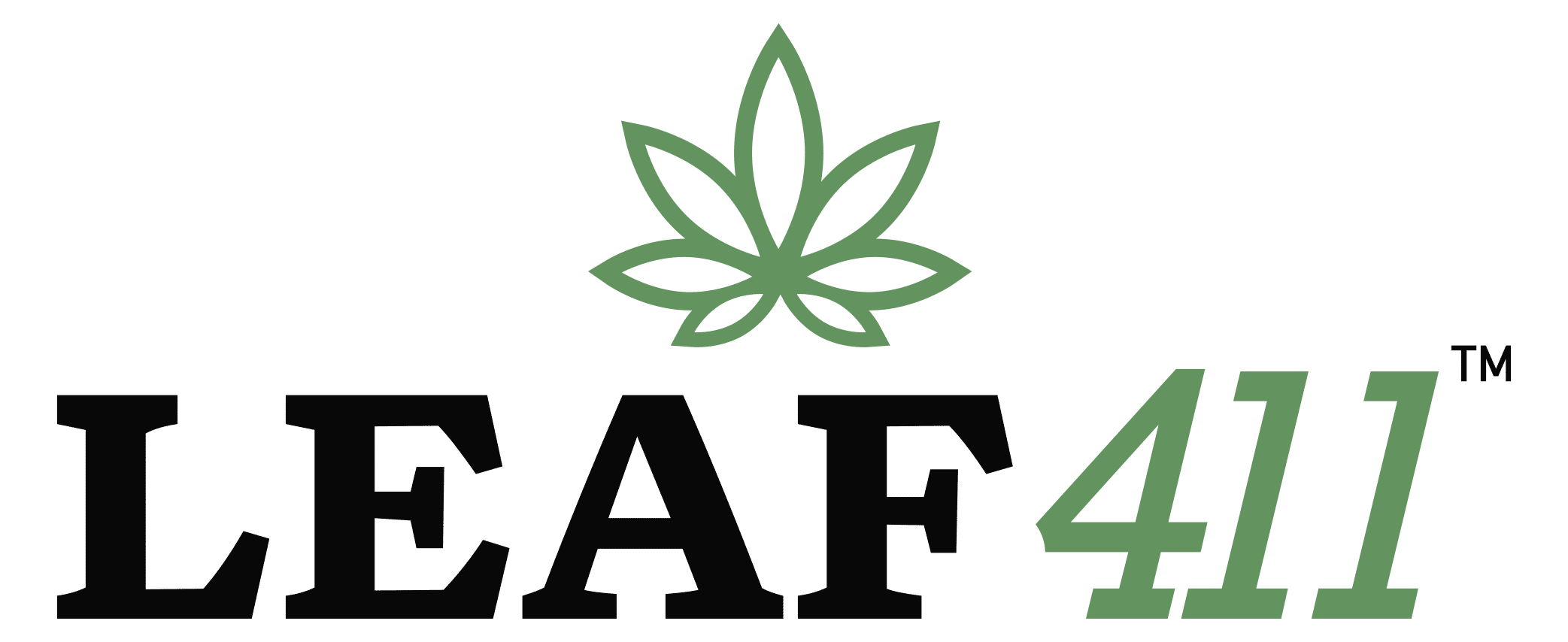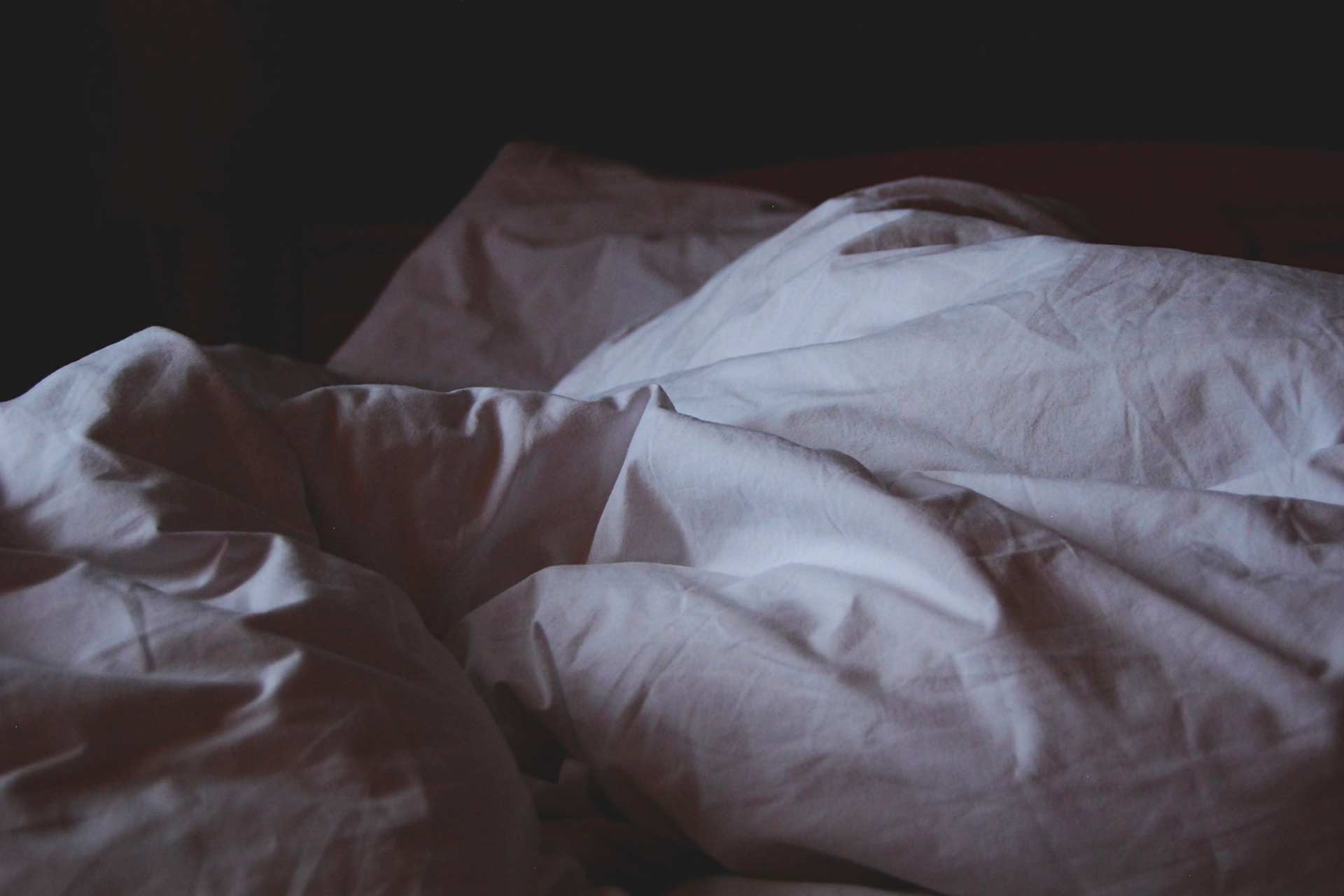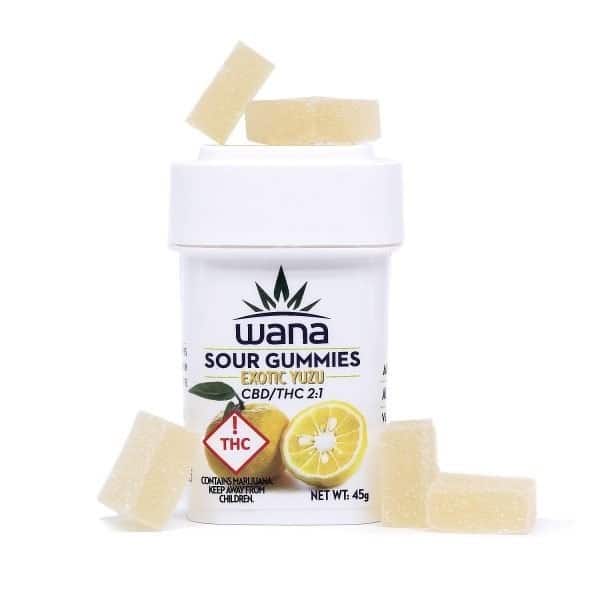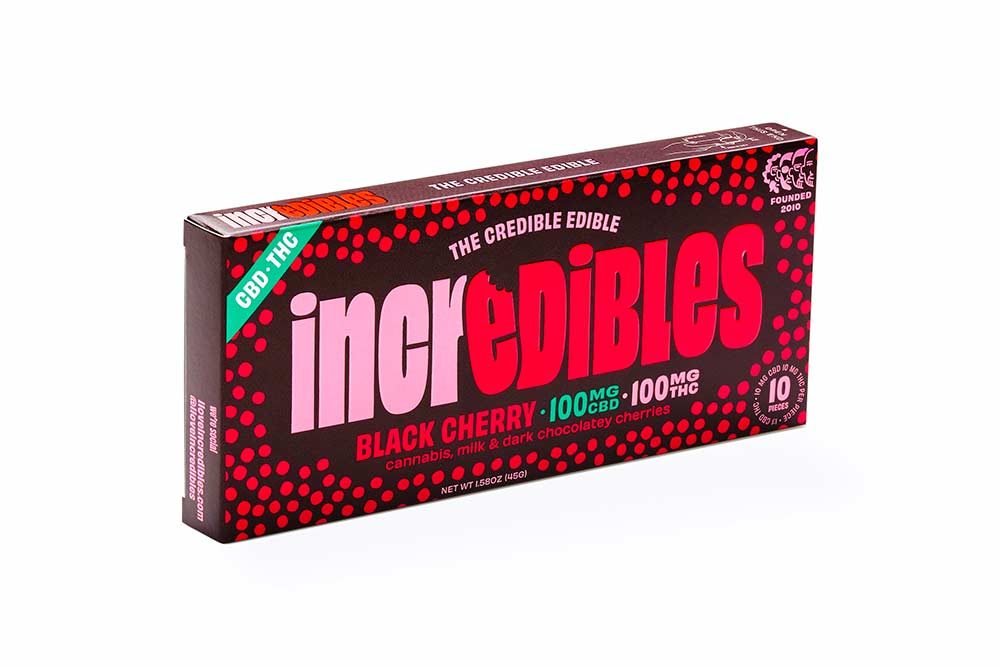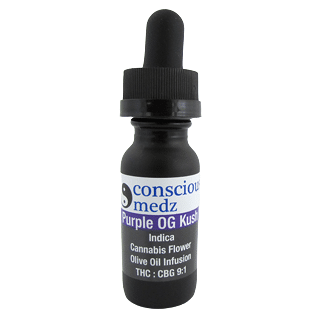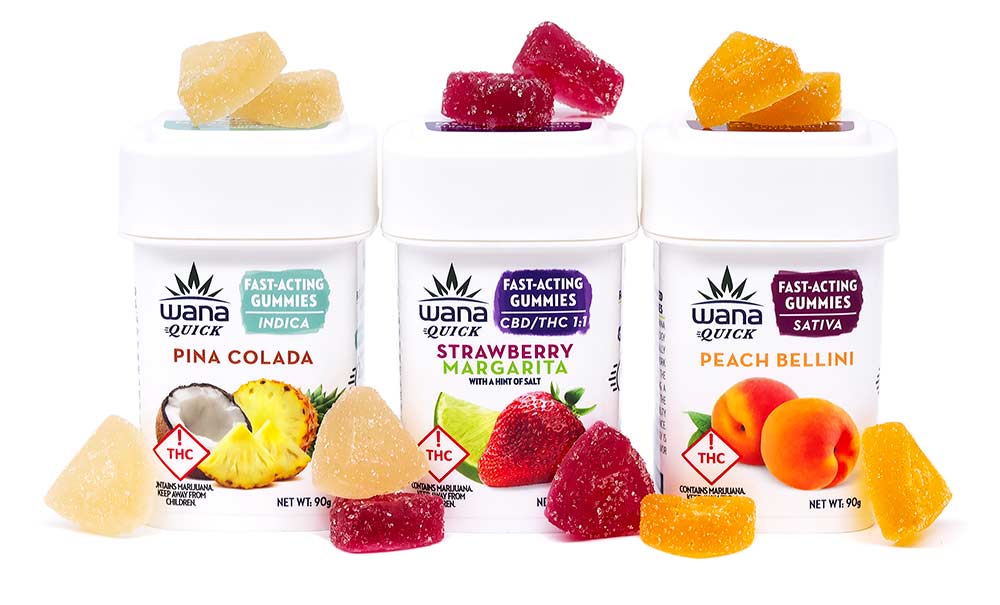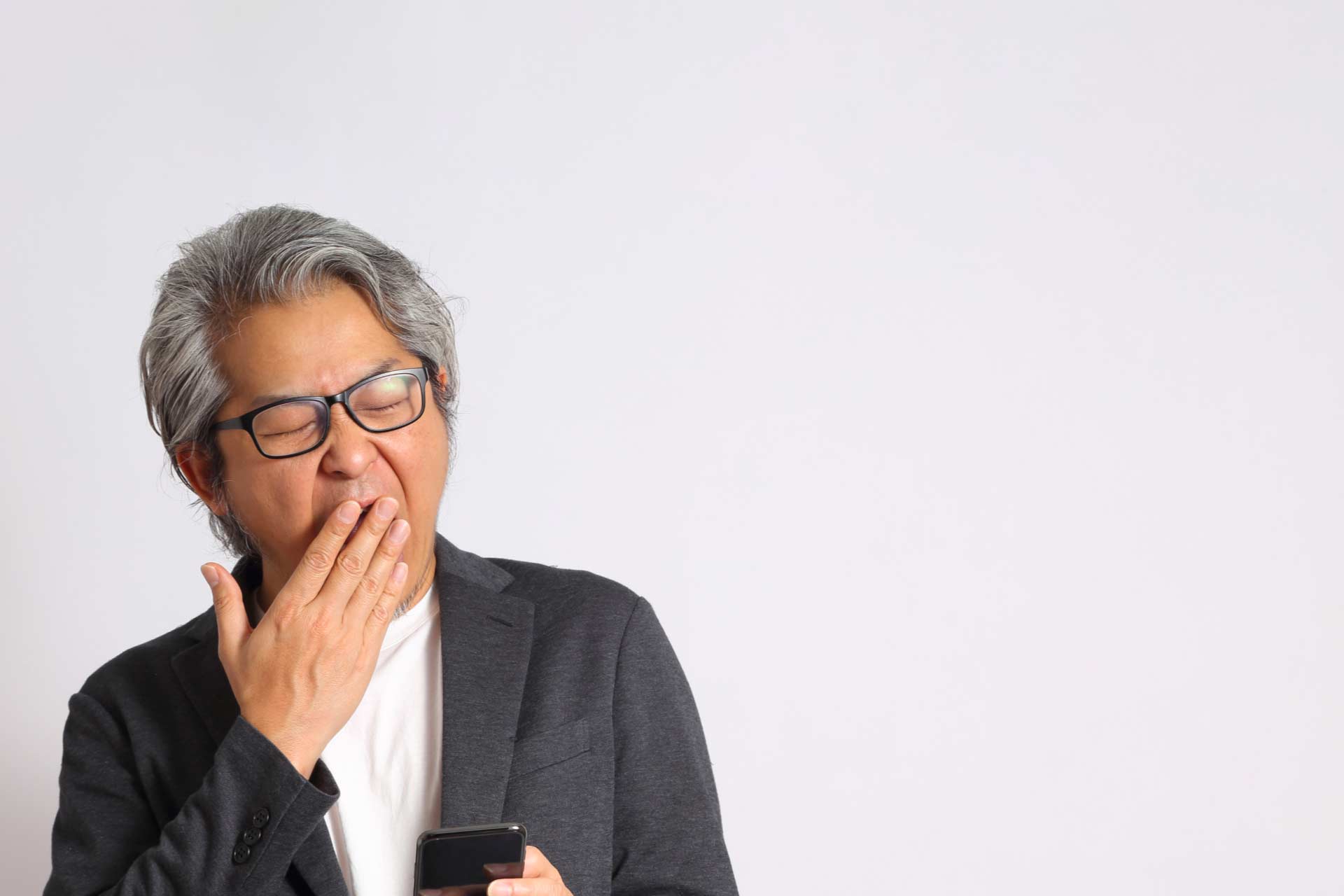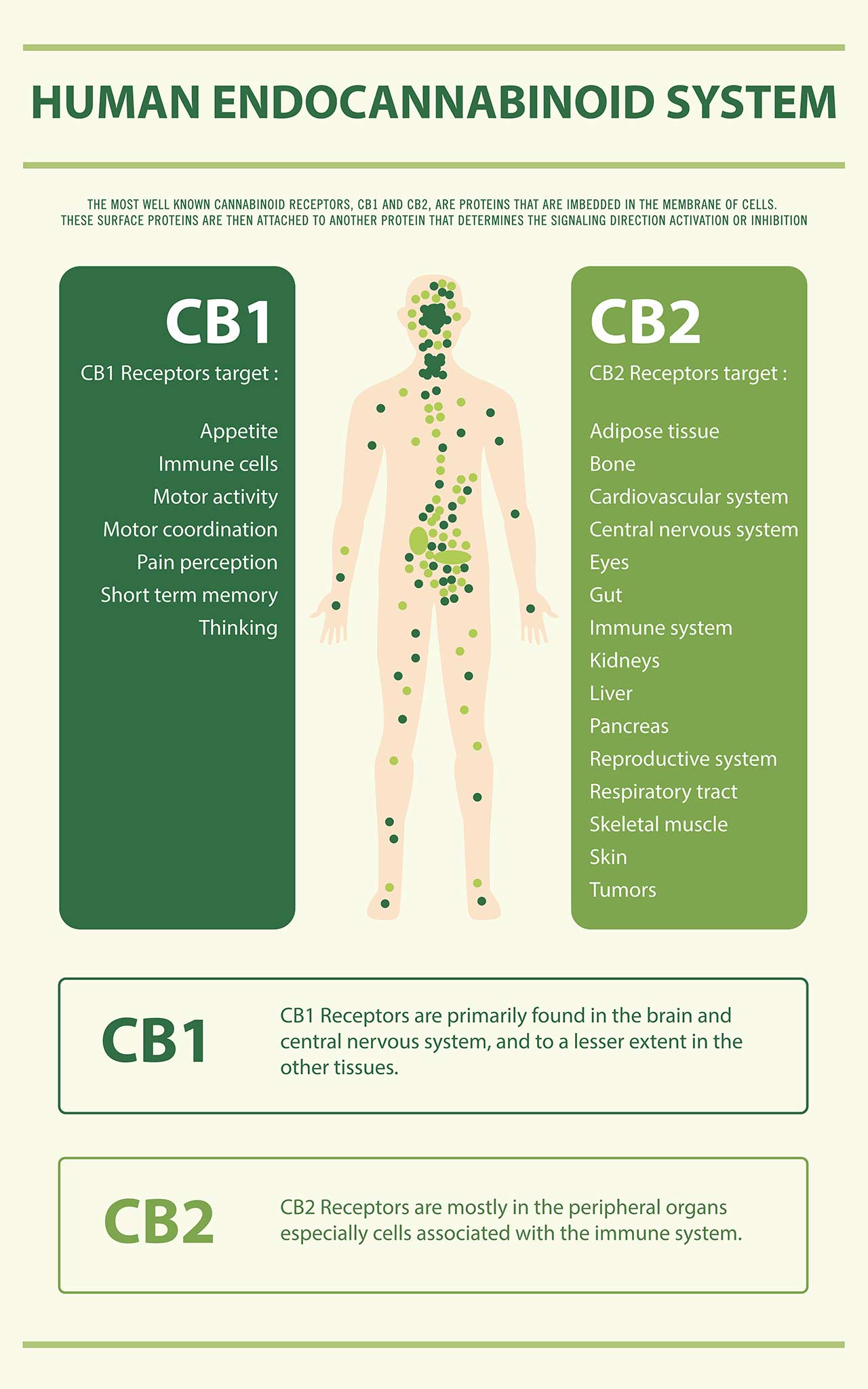Cannabis for Sleep: Tips to Find the Best Product for Your Needs
Medically reviewed by Katherine Golden, RN
Written by Denise Rustning
Cannabis can be a powerful tool for a good night’s sleep, whether you’re dealing with stress or simply age-related insomnia, a topic we discussed in a recent blog post.
However, when it comes time to find the best cannabis products for sleep, your choices may feel overwhelming. Today, we’ll take a look at cannabis products legally sold in medical and adult-use (recreational) dispensaries, breaking down the options. If you’ve ever been confused when it comes to strains (chemovars), ratios, or the pros and cons of edibles versus inhaled products, then today’s blog post is for you.
A Quick Refresher on THC, CBD and Terpenes
We previously talked about the role that the cannabinoids THC and CBD play in our post on using cannabis for pain.
- CBD: This cannabinoid is the star player in hemp products which are federally legal. CBD hemp products are required to have below 0.3% THC, which is such a small amount that it’s not intoxicating and won’t get you high. You’ll also find CBD in cannabis products that contain higher levels of THC.
- THC: The cannabinoid responsible for the “high,” if used in large enough amounts. Cannabis products containing over 0.3% THC remain illegal at the federal level and can only be legally purchased in states that have legalized adult-use (recreational) or medical marijuana.
Of course, CBD and THC aren’t the full story. Terpenes are increasingly understood to play a major role in cannabis’s therapeutic benefits. Plant terpenes are aromatic compounds found in many different plants—for example, the relaxing linalool terpene is found in lavender as well as cannabis.
Terpenes and other plant compounds work together with cannabinoids to create an entourage effect that provides therapeutic benefits beyond any one single compound. Terpenes can also help buffer THC’s intoxicating impact, based on research conducted by Dr. Ethan Russo.
If you’ve ever wondered how some cannabis strains can promote relaxation and sleep while other strains are known for boosting energy and creativity, the answer is largely due to different terpene profiles. We’ll dig into this topic more below.
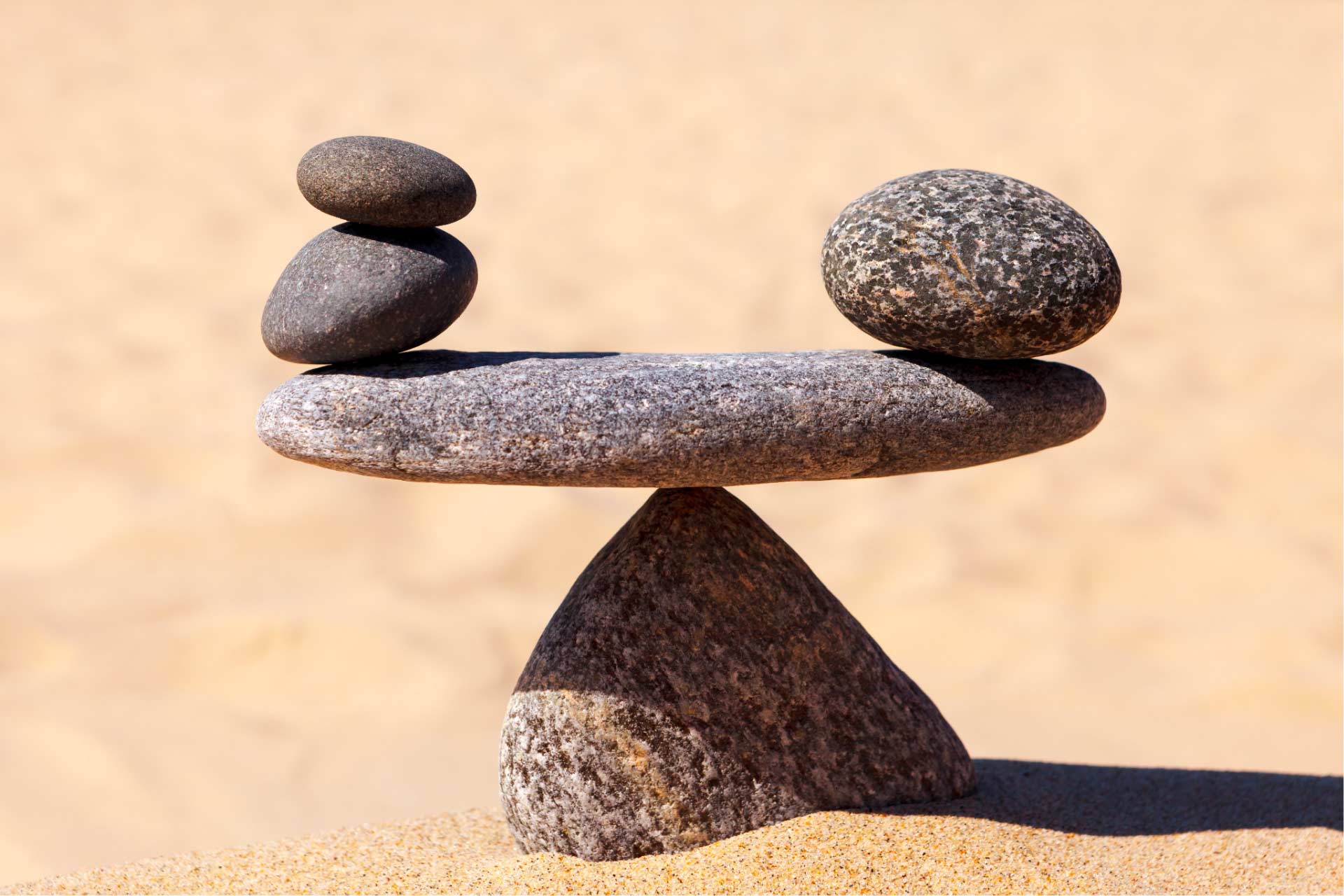
Finding the Best CBD:THC Ratio for Sleep
You may hear budtenders, your friends and especially the Leaf411 nurses talk about the importance of understanding the “ratio” in products. They’re referring to cannabis products manufactured with specific ratios of CBD to THC. For example, a 1:1 ratio product will contain equal parts of CBD and THC, while a 5:1 ratio product will contain five times as much CBD as THC. Understanding different ratios can be a huge help when finding the best sleep product.
Many of our supporting members manufacture different ratio products in addition to THC products. We encourage you to check out each manufacturer’s website to see the range of ratios they offer. Here are some examples showing how different options can help you dial in your cannabis dose for sleep:
Many people find success with a ratio product that’s THC dominant. While these can be more challenging to find, several of our supporting members, including Conscious Medz, have developed products to address this need.
Our Recommendation for the Best CBD:THC Ratio for Sleep
What’s the best ratio to start with? This depends on two factors: (1) The cause of your insomnia (pain, inflammation, stress, mind chatter, etc); and (2) How sensitive your body is to THC.
Typically, we suggest starting with the current gold standard which is a 1:1 ratio, equal parts of CBD to THC, following our mantra of starting with a very low dose and slowing building up. However, depending on your specific health concerns, you might do better with a different ratio. For example, if you have anxiety at night, a 2:1 ratio of 2 parts CBD to 1 part THC may be a safer choice since too much THC for your body can actually worsen anxiety.
Remember that you can always call our free nurse hotline at 844-LEAF411 (844-532-3411) or chat us from the Leaf411.org homepage for personalized guidance that will help you save time and money.
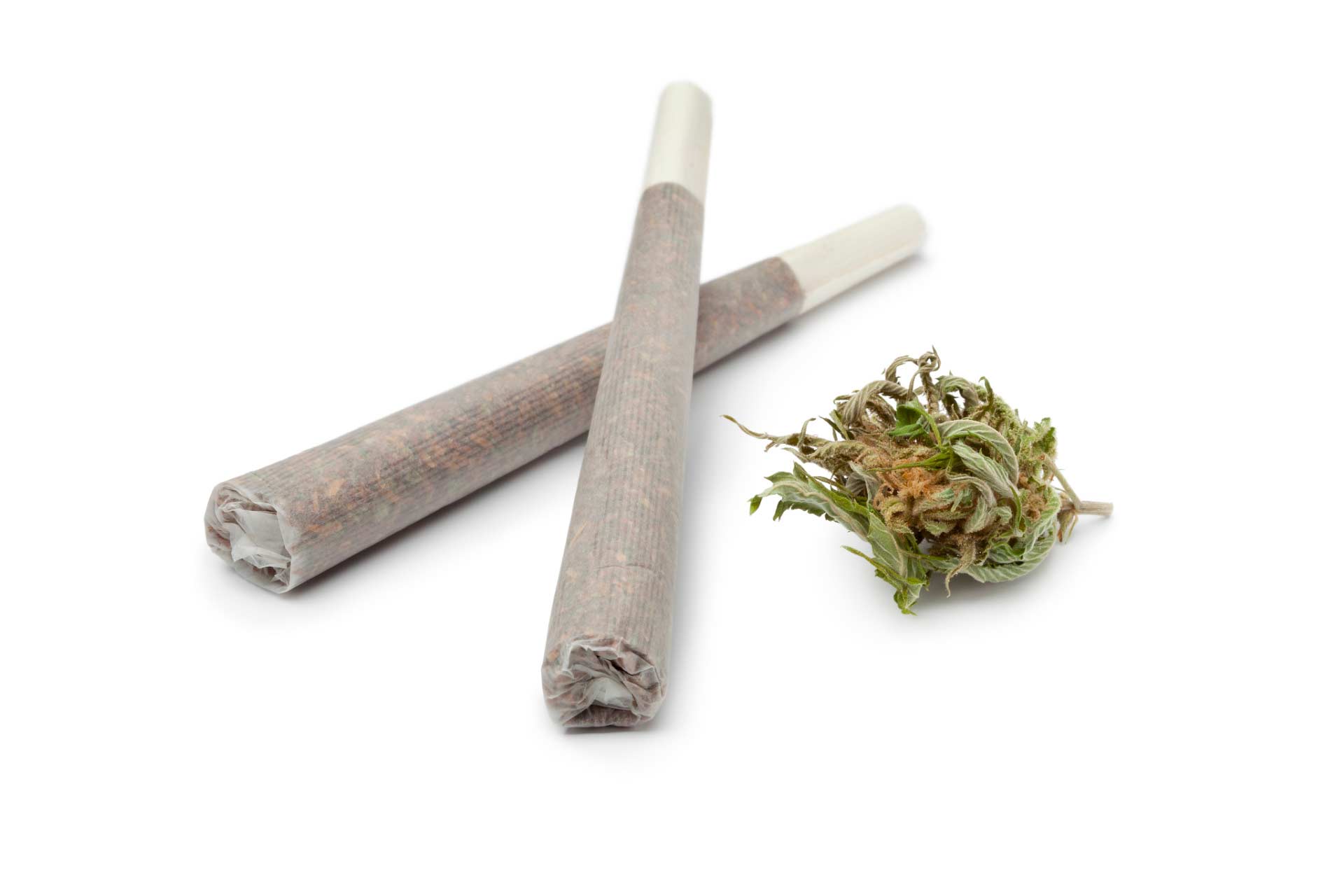
What You Need to Know About Inhalable Cannabis for Sleep
You may be wondering how ratios work when it comes to cannabis flower (bud). Most cannabis sold in dispensaries is THC dominant, with very little CBD. That doesn’t mean that CBD-dominant strains don’t exist, though! They can be challenging to find and don’t necessarily provide the best sleep solution for everyone, however.
Remember, a small amount of CBD alone can actually make your mind more alert. If you’re trying a CBD-dominant flower, you’ll want to experiment with your inhaled dose earlier in the evening versus when your head is about to hit the pillow to ensure you are feeling the sedation you desire. You can always adjust by adding a bit of THC if not.
As you recall, THC and CBD are only part of the story. In the next section, we’ll dive into different cannabis strains and talk about how they impact sleep quality.
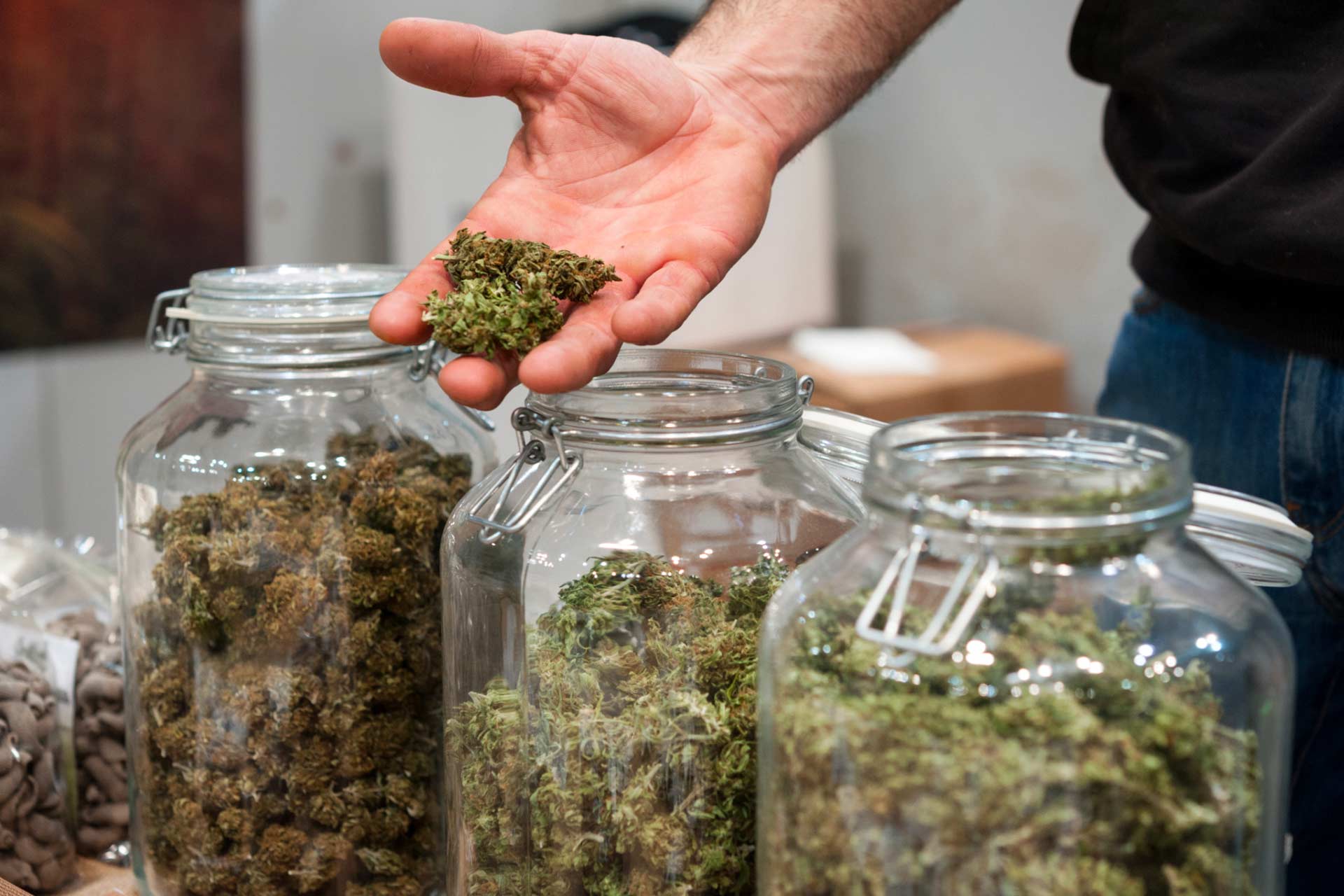
Cannabis Strains and Sleep: Untangling the Puzzle
What’s a cannabis strain (chemovar)? That question can be tricky, but it’s important to understand when shopping for cannabis. (Note: We use the terms “strain” and “chemovar” interchangeably, though chemovar is a scientifically more accurate representation of the compounds in the plant.)
Broadly speaking, cannabis strains are often sorted into one of three categories at the dispensary:
- Sativa: Provides an uplifting, energetic, creative high
- Indica: Provides calm and varying degrees of sedation
- Hybrid: Balanced effects
If you look at actual plant genetics, most of today’s legal cannabis is hybrid, combining the strongest genes from different plants to produce healthy flower. So why are these terms still used?
They continue to be used as a shorthand to describe the plant’s effects. In fact, those effects are mostly the result of other plant compounds—namely terpenes along with minor cannabinoids which give each strain its signature effect.
For example, our Supporting Member Seed & Smith offers two different flower strains, Midnite and White 99, with very similar THC potency levels. Based on that alone, you might expect both to have similar effects, but that’s not the case at all, in large part due to the different terpene profiles!
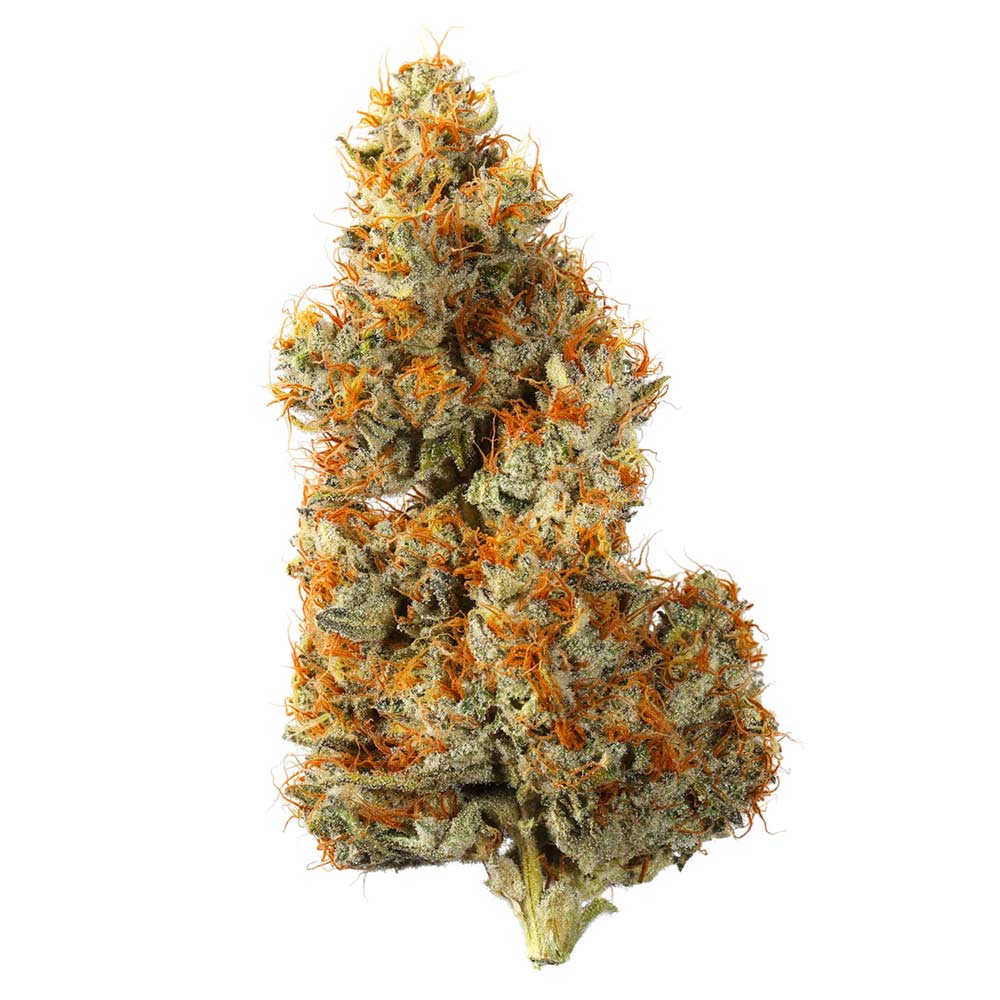
Midnite flower
Dominant Terpene: beta-Myrcene (sedating effect)
Subordinate Terpenes:
beta-Caryophyllene (stress relief)
Linalool (calming)
d-Limonene (stress relief but energizing)
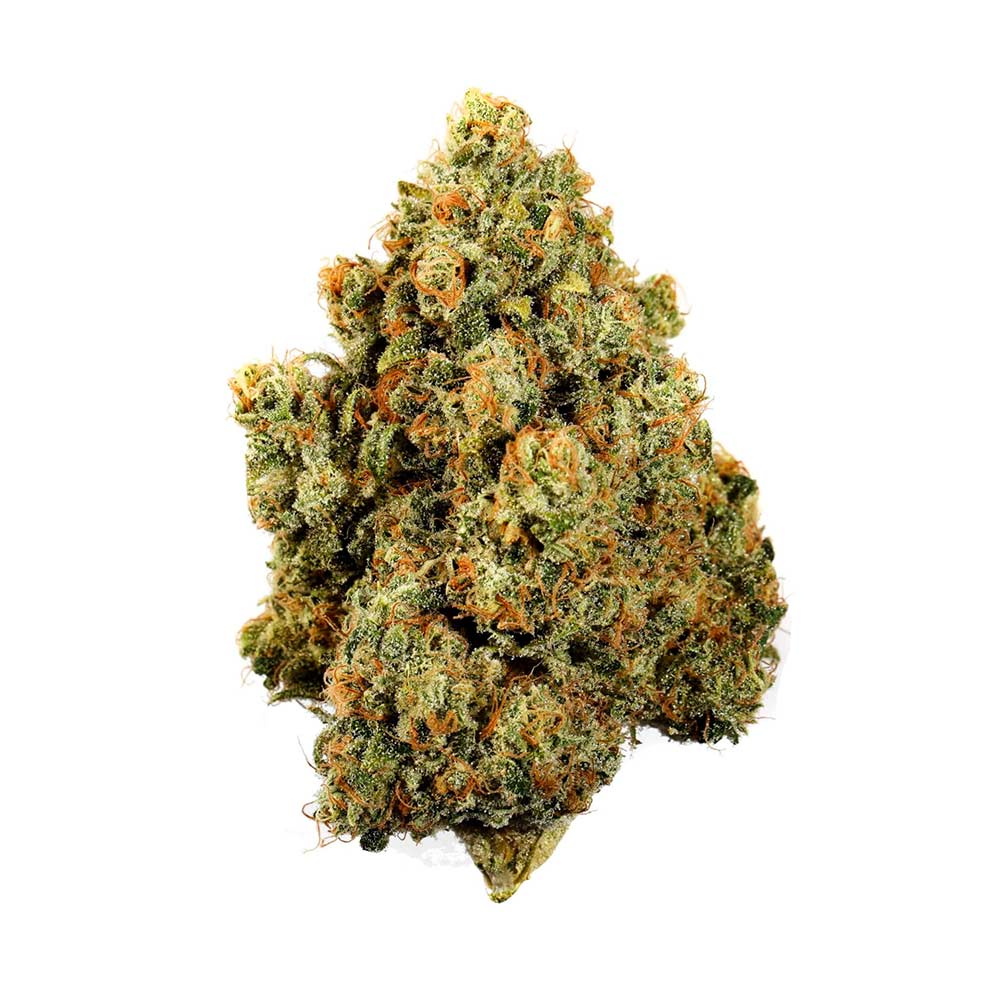
White 99 flower:
Dominant Terpene: d-Limonene (stress relief but energizing)
Subordinate Terpenes:
beta-Caryophyllene (stress relief)
beta-Myrcene (sedating)
Linalool (calming)
Which one of these strains—Midnite or White 99—would you choose for the best chance of a restful sleep?
Our Leaf411 nurses would suggest trying the Midnite flower due to the dominant terpene causing sedation. That potency range is quite high though, so a word of caution would also be given by our nurses to start with one inhalation first and assess if that is enough for your intention.
Cannabis Strains and Edibles
Some infused product manufacturers also create products that utilize plant compounds from specific strains, or which reference either Sativa or Indica type effects. You’ll see those listed on several of the products above.
Strains are also impacted by cultivation factors, including whether the plants are grown outdoors or indoors along with individual cultivation processes including lighting, fertilizers, etc. That’s why your friend in another legal state might rave about the Black Ice strain for sleep, yet the flower you bought in your own state doesn’t compare.
All this is to say that while you may think strains are the entire story, it’s often not the case. However, strains can provide clues for what to expect.
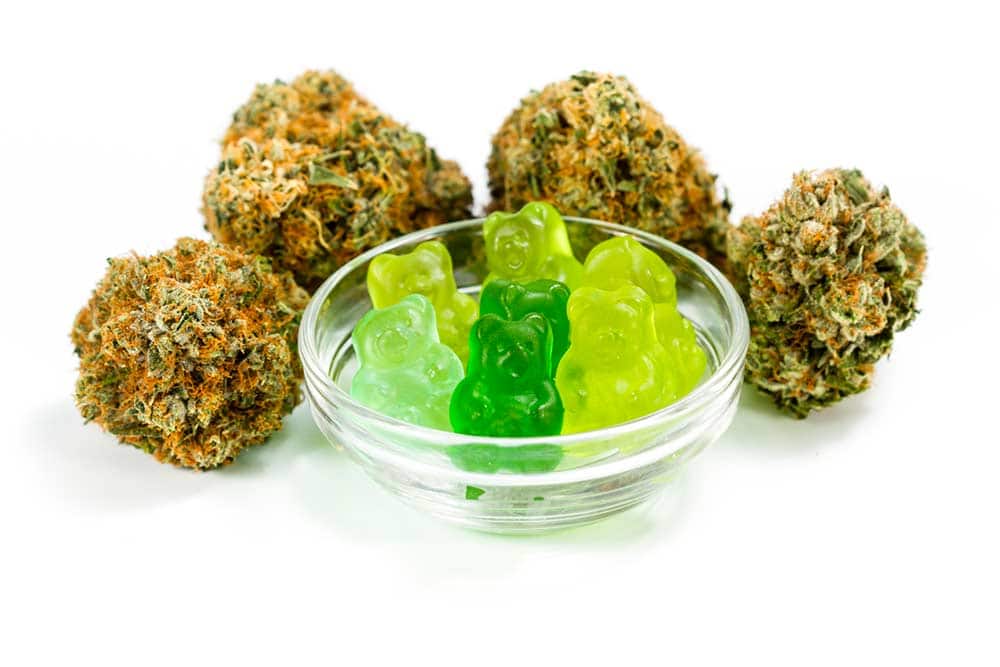
Smokable Versus Edible Cannabis for Sleep
An additional consideration when shopping for cannabis for sleep is the route of administration—how you want to use cannabis.
To some extent, it’s a matter of personal preference and also the type of insomnia you’re trying to treat, whether that involves having trouble falling asleep, staying asleep or both.
Smoking cannabis can be a responsible, safe method of administration in legal states; however, deep stigma remains around inhaling cannabis. Likewise, some people have concerns about the safety of vapes following the spike in vape-associated lung injuries last year, though the CDC traced most of those cases back to counterfeit or illicit vape cartridges containing Vitamin E acetate or other contaminants. In the face of the current pandemic, many people have also decided to stop smoking any substance, including cannabis, opting for edibles instead. And lastly, you may simply live in an apt, condo or shared housing where smoking is prohibited.
When you smoke or vape cannabis, the effects can be felt very rapidly, often within minutes. The intoxicating effects from smoking or vaping typically last between 2-4 hours.
From a sleep perspective, smoking or vaping may be beneficial for people who have a difficult time falling asleep. Inhalation may not fully meet your needs if you also have trouble staying asleep, though, since the effects will typically subside within the 4-hour mark.
Edibles including candies, tinctures and capsules typically have a longer onset—the amount of time it takes before you feel their effects. You can expect ingestion to take anywhere from 30 minutes to a couple of hours before you feel the effects, though those effects will last a lot longer—typically from 6-8 hours.
Edibles can be a good option if you have a tough time staying asleep throughout the night. However, you’ll want to make sure your schedule allows a full 8 hours of time for sleep.
A New Option on the Market: Quick-Acting Cannabis Edibles
Many manufacturers, including Quiq and Wana, are manufacturing new quick-acting edibles that take effect much more quickly, similar to inhaled products when it comes to timing. These new fast-acting products are a wonderful alternative to help with falling asleep. Remember, though, that what hits your body faster will also subside faster. Fast-acting ingestible products may take some trial and error before determining whether they’re better for early evening relaxation or insomnia.

The Leaf411 Mantra: Start Low and Go Slow (and Plan for a Full Night’s Sleep!)
If you’re using edible cannabis products, you’ll want to use the products 1-2 hours before bedtime instead of waiting until the moment you are climbing into bed. Timing your dose will allow you to relax before bedtime. Of course, it should go without saying, but don’t plan to drive while using any type of cannabis, because you never know how quickly the product will take effect.
Because everyone’s system is different, the minimum dose required for positive effects is also different—that’s why we always say to start low and go slow when trying a new cannabis product. How low? We suggest starting with 1/4 the suggested serving size on the package, or 1-2 mg of THC, whichever is lower.
If you’re smoking or vaping, this equals one inhalation at a time and waiting at least 15 minutes in between doses to assess your tolerance.
You may not feel anything at the lowest dose, but by starting low and going up slowly each night, you can build up your dose safely until you find the right amount that works for your body. When increasing by a milligram or less each night, you may still end up with a dose that makes you feel a bit too groggy in the morning or uncomfortable before falling asleep. If this happens, just go back to the dose that was comfortable and reassess after a few days. When using ingestible products (edibles and tinctures), it can take up to 2 hours for you to feel an effect, so allow plenty of time before increasing your dose.
Our Leaf411 nurses always guide our callers to safe use by cautioning about potential side effects from THC, which is dry mouth and an unsteady gait. We suggest keeping a glass of water at your bedside so there is no need to walk to the kitchen and risk falling when you feel the cannabis take effect. These precautions are very similar to those you’d take with any other sleep medications.
Get Your Cannabis Sleep Questions Answered During Our First Leaf Learning Series!
This Thursday, August 20, Leaf411 is launching our inaugural Leaf Learning Series: Get the 411 on Cannabis Therapeutics. Join us online from 4-7 p.m. MDT for a FREE beginner-friendly cannabis 101 presentation, followed by live Q & A with our own Co-Founder and CEO/ED Katherine Golden, RN, as well as Leaf411 Advisory Board member Dr. Dave Gordon from 4Pillars Health & Wellness. Sign up today at this link: https://hopin.to/events/leaf-learning
Many of our supporting members will be on-hand sharing information about their products and ready to answer your questions, including live Q&As with Medically Correct’s President Bob Eschino (maker of Quiq and incredibles); Stillwater Brands Ripple; and CAASI CBD’s Founder and CEO Lori Peck. Seed & Smith will host a virtual grow tour and Lightshade will also be providing a dispensary tour! You’ll also have the chance to meet one of Nature’s Gift Shop’s budtenders. We’ll also have a virtual expo hall with Wana, Ripple, Lightshade, Care by Design and Altus sharing information on their high-quality cannabis products.
Hop over to this link to reserve your spot: https://hopin.to/events/leaf-learning
Also, be sure to sign up for our newsletter below, so that you can be the first to learn about upcoming events!
Seniors and Insomnia: How a Little THC Can Go A Long Way to Restoring Sleep
Medically reviewed by Katherine Golden, RN
Written by Denise Rustning
Insomnia is an issue we hear a lot about on the Leaf411 hotline. Many callers ask if cannabis might help manage age-related sleep issues.
The short answer for most people is yes—but it depends on your specific health conditions as well as finding the best products to meet your needs.
We also hear concerns from callers who are eager to try cannabis as an alternative for sleep but worry about experiencing an unwanted high.
In today’s blog, we’ll address both these issues—why cannabis may help with age-related sleep issues and how to use it to minimize the risk of feeling overly intoxicated or uncomfortable.
(Note: When we talk about cannabis, we include both CBD hemp which is federally legal and non-intoxicating with less than 0.3% THC, as well as marijuana containing over 0.3% THC, which is legally sold in dispensaries in states that have legalized adult-use/recreational or medical marijuana.)
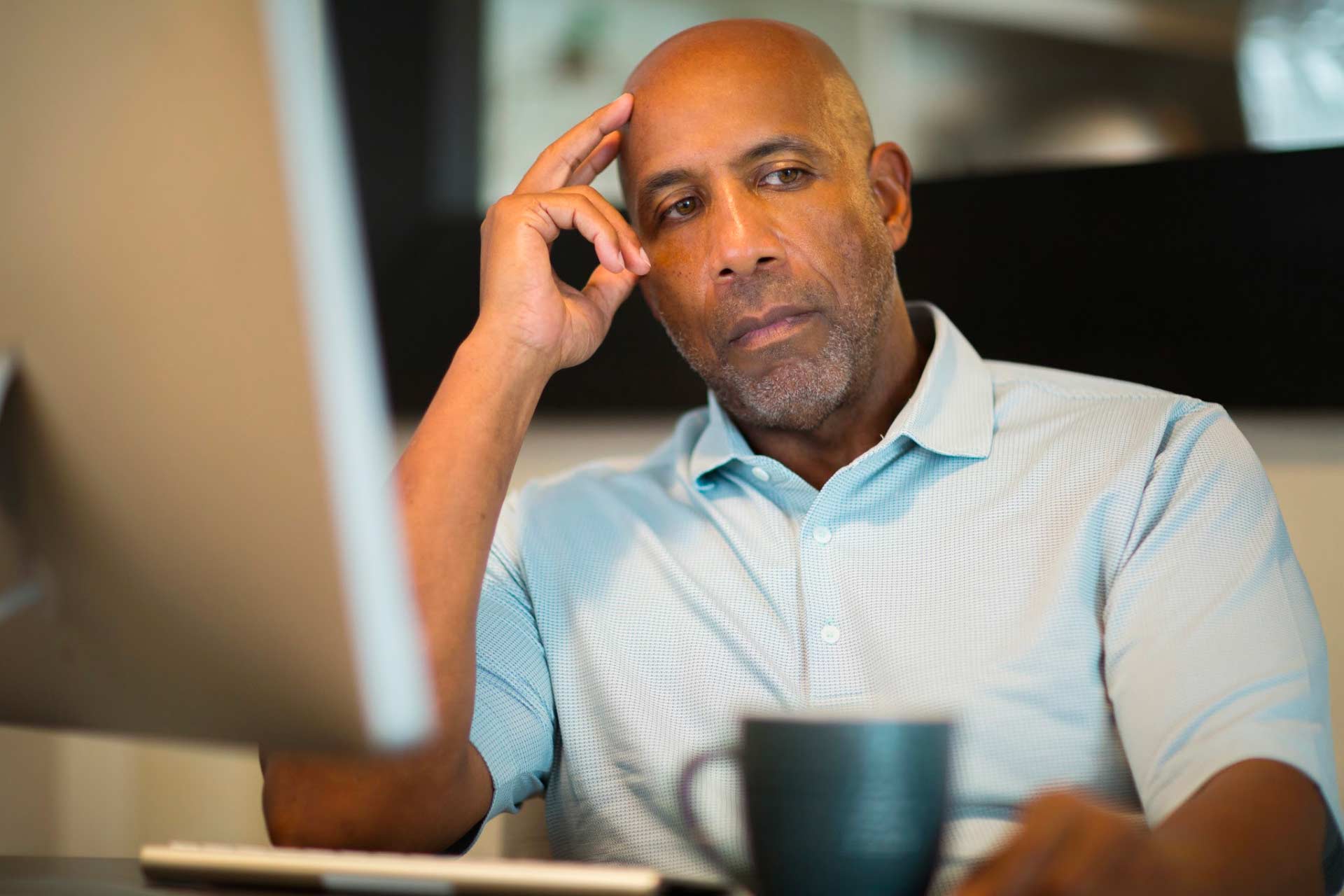
Why Is Sleep So Hard As You Get Older?
It’s a well-known fact that sleep patterns change as we grow older. Falling asleep is more difficult and quality of sleep suffers, according to the Sleep Foundation. Many seniors also experience insomnia, impacting their overall quality of life. Changes in seniors’ sleep architecture trace back to the aging brain, a phenomenon that researchers have managed to capture using imaging in the lab.
Also, sleep apnea, restless leg syndrome, pain and many other common physical and mental health conditions may negatively impact sleep cycles. And let’s not forget those everyday worries that keep all our minds preoccupied late into the night!
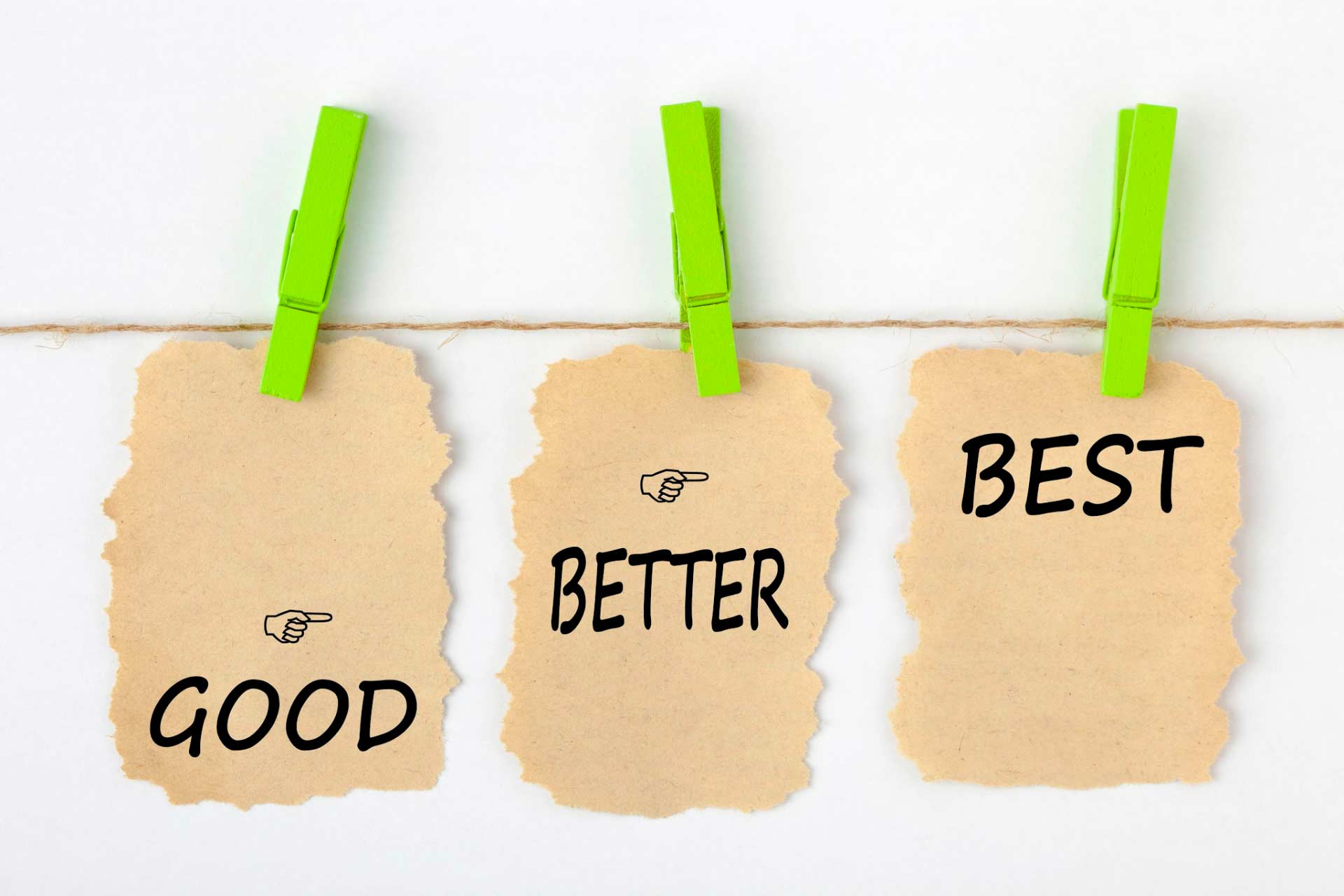
Finding a Sleep Solution that Fits
When seeking a sleep solution, it’s essential first to have a clear sense of where the problem is. Many different treatment options exist, but they are not one-size-fits-all.
If your sleep difficulties are rooted in unhelpful bedtime habits like keeping the news channel on all evening, then the solution may involve behavioral approaches like turning off the TV and listening to calming music instead.
Certain health conditions and medications may also cause insomnia. If you suspect that a health condition may be the source of your insomnia, we suggest first talking with your primary provider to address any underlying medical issues.
In some cases, cannabis might be a helpful adjunct therapy for specific health issues. For example, cannabis has shown promise in managing restless leg syndrome. However, in other cases, cannabis may not be a good fit if it interferes with medications you’re taking.
Our Leaf nurses have the experience, training and research-backed knowledge to help determine whether cannabis may be a suitable option for you if you’re dealing with health condition-related sleep issues.
For many seniors, though, insomnia isn’t due to a specific health issue but is simply the outcome of the aging brain and changing sleep patterns. You may find that it’s harder to fall asleep or stay asleep, even after cutting out caffeine, taking up evening mindfulness practices, and shutting down electronics early in the evening. That can be frustrating!
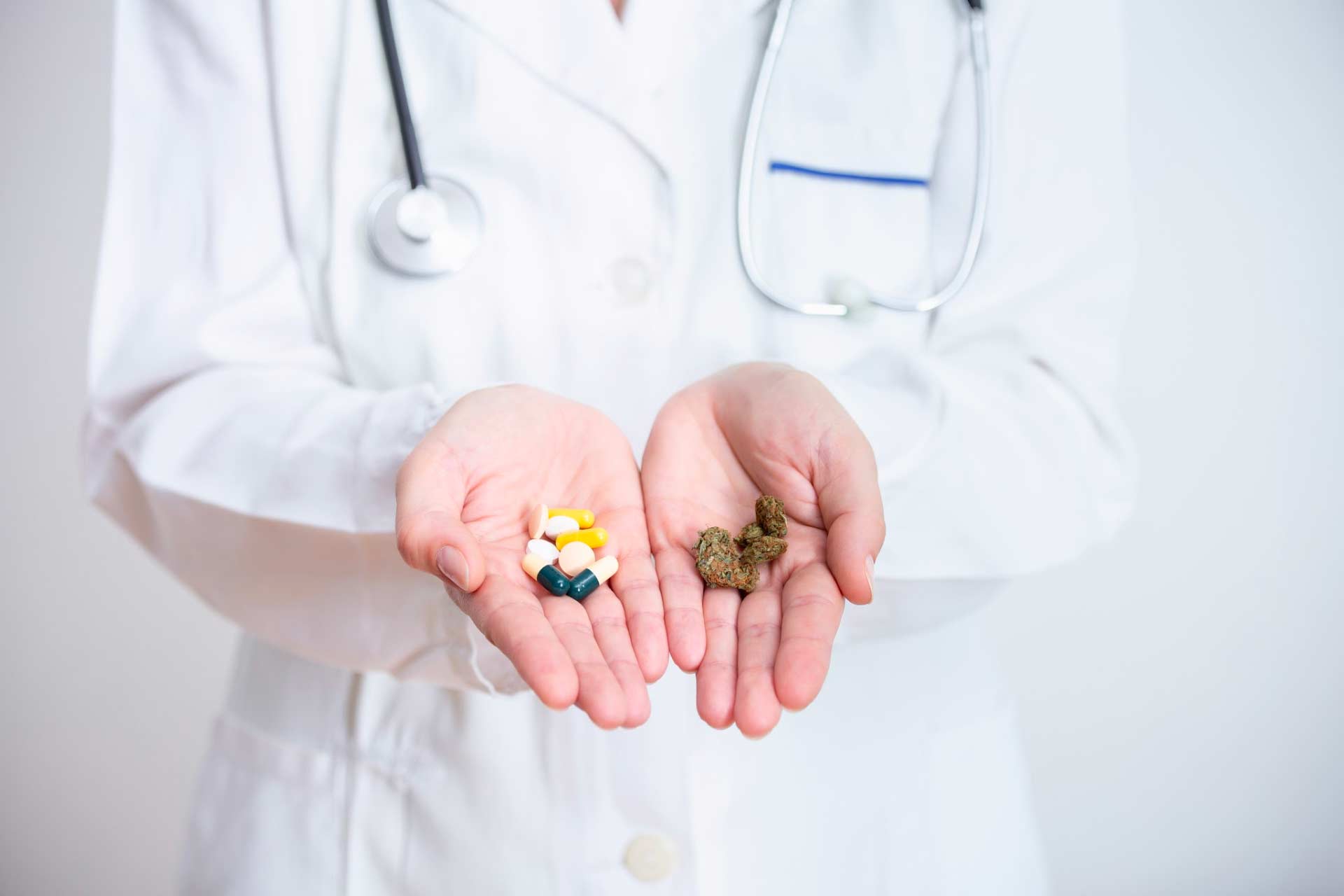
Looking For Alternatives to Pharmaceutical Sleep Medications?
Finding a product that supports a good night’s sleep is the holy grail for most of us. A lot of over-the-counter and prescription products exist, but many come with unwanted side effects.
Over-the-counter medications like Unisom (doxylamine) and Benadryl (diphenhydramine) may cause unwanted grogginess the following day.
Likewise, many prescription sleep medications may work in the short term but have troubling trade-offs. The popular drug Ambien (zolpidem tartrate) is a hypnotic that’s gained a reputation for causing serious side effects in some people, including amnesia, hallucinations, sleepwalking and even sleep-driving. It also has the potential for dependency, like many other prescription sleep medications.
A powerful plant-based sleep alternative is becoming available to more people as marijuana legalization spreads to more states each year. However, just like conventional medications, not all marijuana is the same. Knowing the best type of product for your particular sleep issues can make a tremendous difference.
Your Cannabis Sleep Team: THC, CBD, CBN, Terpenes and More
You’ve likely heard about tetrahydrocannabinol (THC) and cannabidiol (CBD); however, those are only two out of 113 different identified cannabinoids found in cannabis plants. Here’s a quick primer on some of the various cannabis plant compounds:
- THC: This cannabinoid is responsible for the “high” that cannabis is best known for when used in large enough amounts. THC binds to CB1 receptors that are primarily found in your brain and spinal cord and help regulate the nervous system, as well as CB2 receptors which are found in the peripheral nervous system and play a role in reducing inflammation.
- CBD: A non-intoxicating cannabinoid that indirectly affects the CB1 and CB2 receptors, though it doesn’t bind to them. CBD has been shown to reduce inflammation and muscle spasms and to help manage anxiety.
- CBN: Cannabinol (CBN) is a lesser-known cannabinoid created when THC is exposed to heat and light over a period of time, and has been called the “sleep cannabinoid” by some people due to its sedating effects. It also lacks the intoxicating effects of THC, though an older study showed that it could make the effects of THC feel stronger. Research is still limited on exactly how CBN impacts sleep onset or duration.
- Terpenes: Terpenes are aromatic compounds found in cannabis along with many other plants, including lemons, basil, oregano and pine trees. For example, if you’ve ever used lavender-scented products to help with relaxation, then you’ve experienced the power of linalool, a terpene found in lavender as well as in some cannabis chemovars (strains).
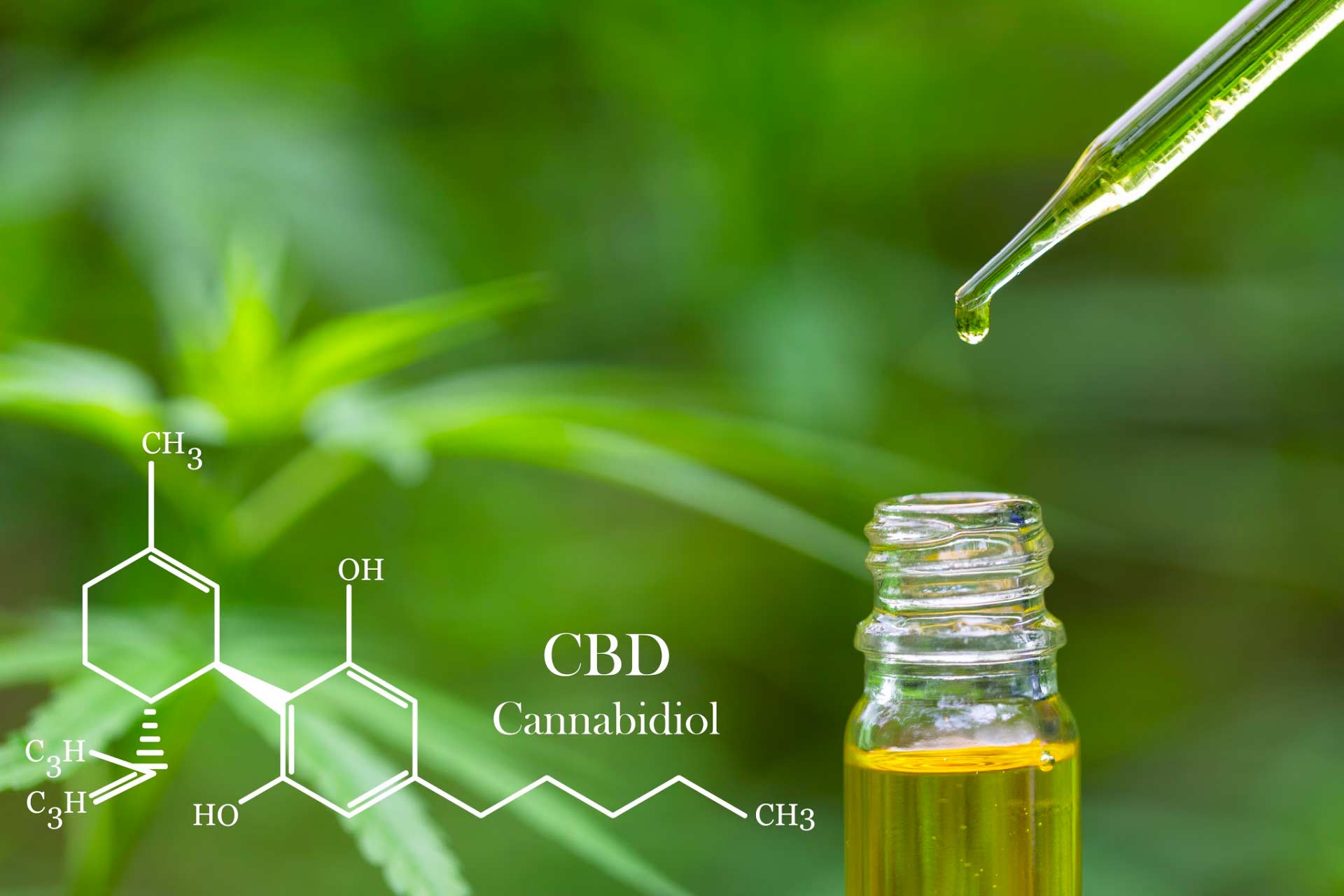
How CBD Helps with Sleep – and How It Doesn’t
Remember when we mentioned the importance of identifying the root cause of your insomnia to find the best solution? CBD is the perfect example of why that’s the case.
If your sleeplessness is the result of anxiety, stress or inflammation-related pain, then CBD may be useful at higher doses. Paradoxically, lower doses of CBD may cause wakefulness. Dr. Dustin Sulak discusses this challenge in an interview on his Healer.com website.
However, if you are contending with age-related changes in your sleep patterns, CBD may not be enough to solve your sleep issues.
Unfortunately, when CBD doesn’t work, many folks write off plant-based alternatives as a failed experiment and resign themselves to chronic fatigue or less-than-ideal pharmaceuticals.
Why CBD May Not Solve Your Sleep Problems
CBD doesn’t bind with the CB1 receptors that are concentrated in your brain and nervous system, but THC does. That gives THC an advantage when dealing with age-related sleep issues that are connected to the brain.
“But wait,” you might be saying, “I don’t want to get high—I just want to get a good night’s sleep!”
At Leaf411, we understand. Despite growing research and medical marijuana legalization in over half the states, the plant still suffers from stigma and misconceptions.
Stoner stereotypes are hard to shake, especially when some brands and celebrities promote the recreational, fun aspects of cannabis and not the plant’s therapeutic value.
Also, occasional fear-mongering news stories report how potent cannabis is today, but that’s not the full story. The legalization of marijuana in many states has allowed for more precise cultivation and manufacturing practices to develop flower (bud), concentrates, edibles, tinctures and other products tailored to different consumers. As a result, you’ll find products designed for consumers seeking high-THC products as well as for consumers looking for much smaller amounts of THC, or even ratio products with balanced amounts of THC and CBD.
Most legal states also require licensed marijuana cultivators and manufacturers to regularly test their products, assuring that the stated levels of THC are accurate. CBD products, on the other hand, are not required to undergo any testing, so it’s buyer beware.
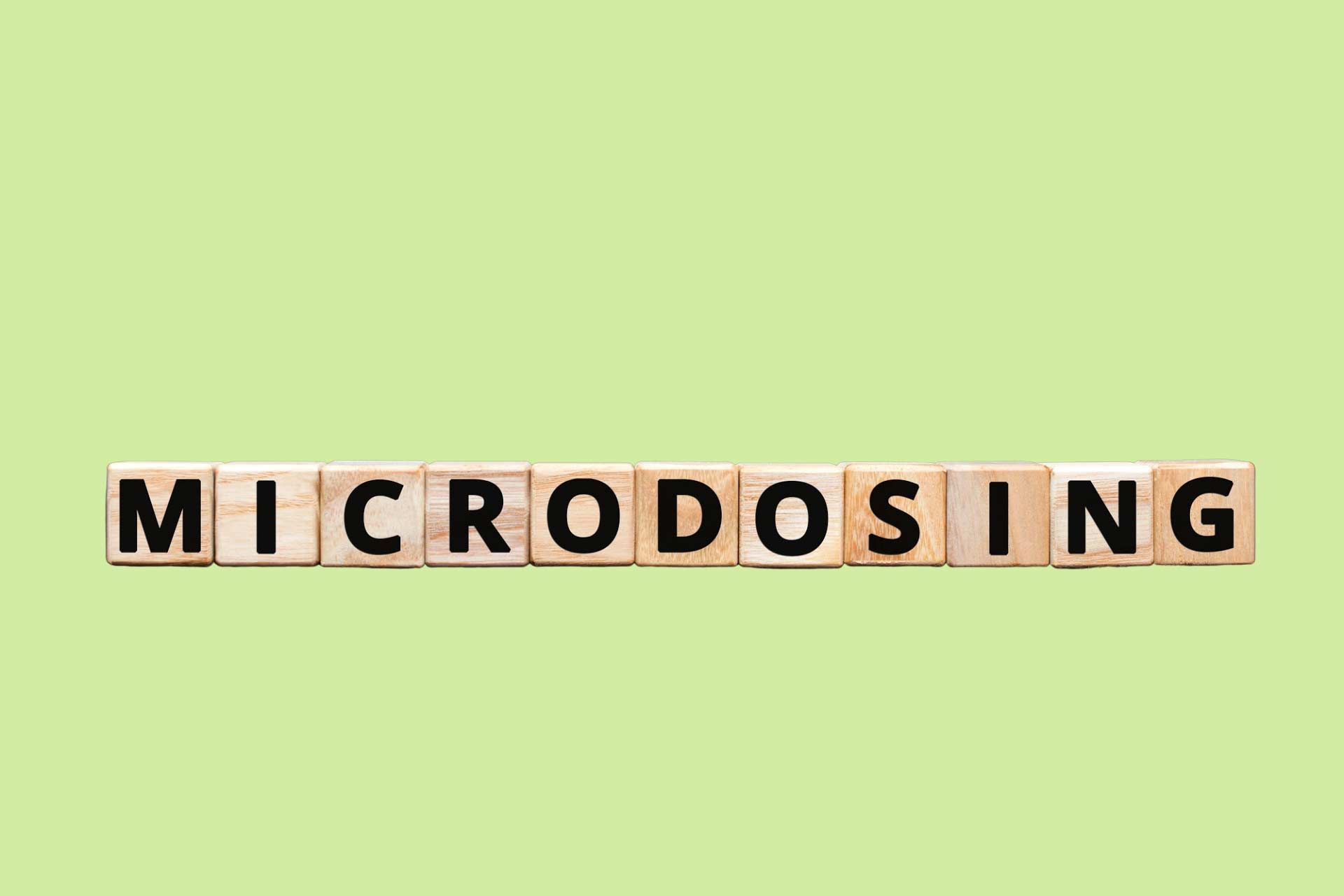
Microdosing THC for Sleep, Not to Get High
When it comes to using marijuana for sleep, our mantra at Leaf411 is to start low and go slow.
Leading cannabis physicians support this approach, including Leaf411 board member Dr. Dave Gordon as well as Dr. Dustin Sulak.
Even very small amounts of THC, like 2mg, can have therapeutic benefits. Using very small amounts of THC is called microdosing, and it’s an increasingly popular option among people of all ages who are seeking cannabis’s health benefits without an intoxicating high.
Because everyone’s endocannabinoid system is different, the minimum dose required for positive effects is also different—that’s why we always say to start low and go slow to find your optimal dose. How low? At Leaf411, we suggest starting with ¼ the suggested serving size on the package, or 1-2 mg of THC, whichever is lower.
You may not feel anything at the lowest dose, but by starting low and going up slowly each night, you can build up your dose safely until you find the right amount that works for your body. When increasing by a milligram or less each night, you may still end up with a dose that makes you feel a bit too groggy in the morning or uncomfortable before falling asleep. If this happens, just go back to the dose that was comfortable and reassess after a few days. When using ingestible products (edibles and tinctures), it can take up to 2 hours for you to feel an effect, so allow plenty of time before increasing your dose.
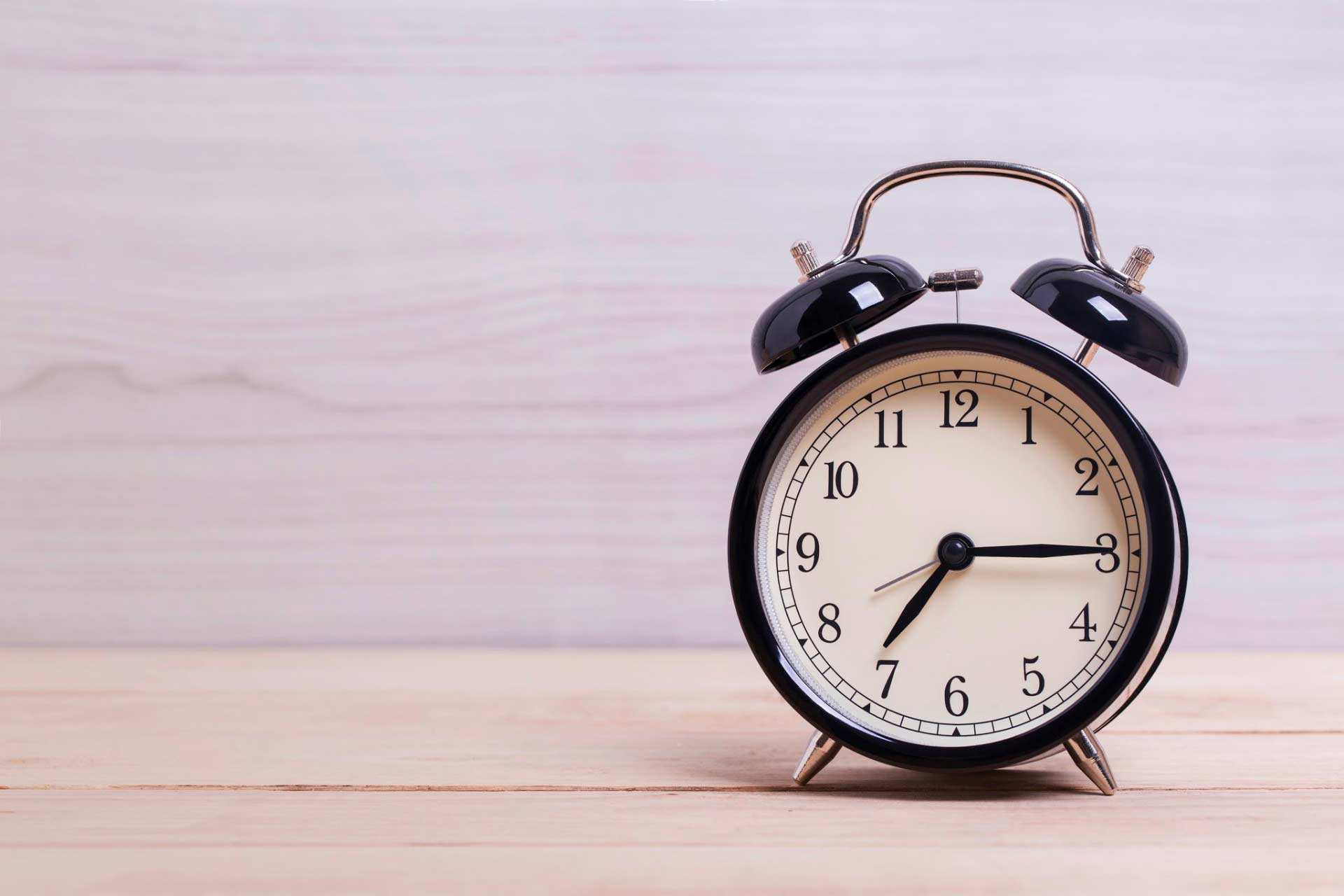
It is always vital to time your dose about 1-2 hours before you want to fall asleep instead of waiting until the moment you are climbing into bed. Timing your dose will allow you to relax before bedtime instead of watching the clock and hoping it kicks in fast.
Our Leaf411 nurses always guide our callers to safe use by cautioning about potential side effects from THC, which is dry mouth and an unsteady gait. Our nurses suggest keeping a glass of water at your bedside so there is no need to walk to the kitchen and risk falling when you feel the cannabis take effect. These precautions are very similar to those you’d take with any other sleep medications.
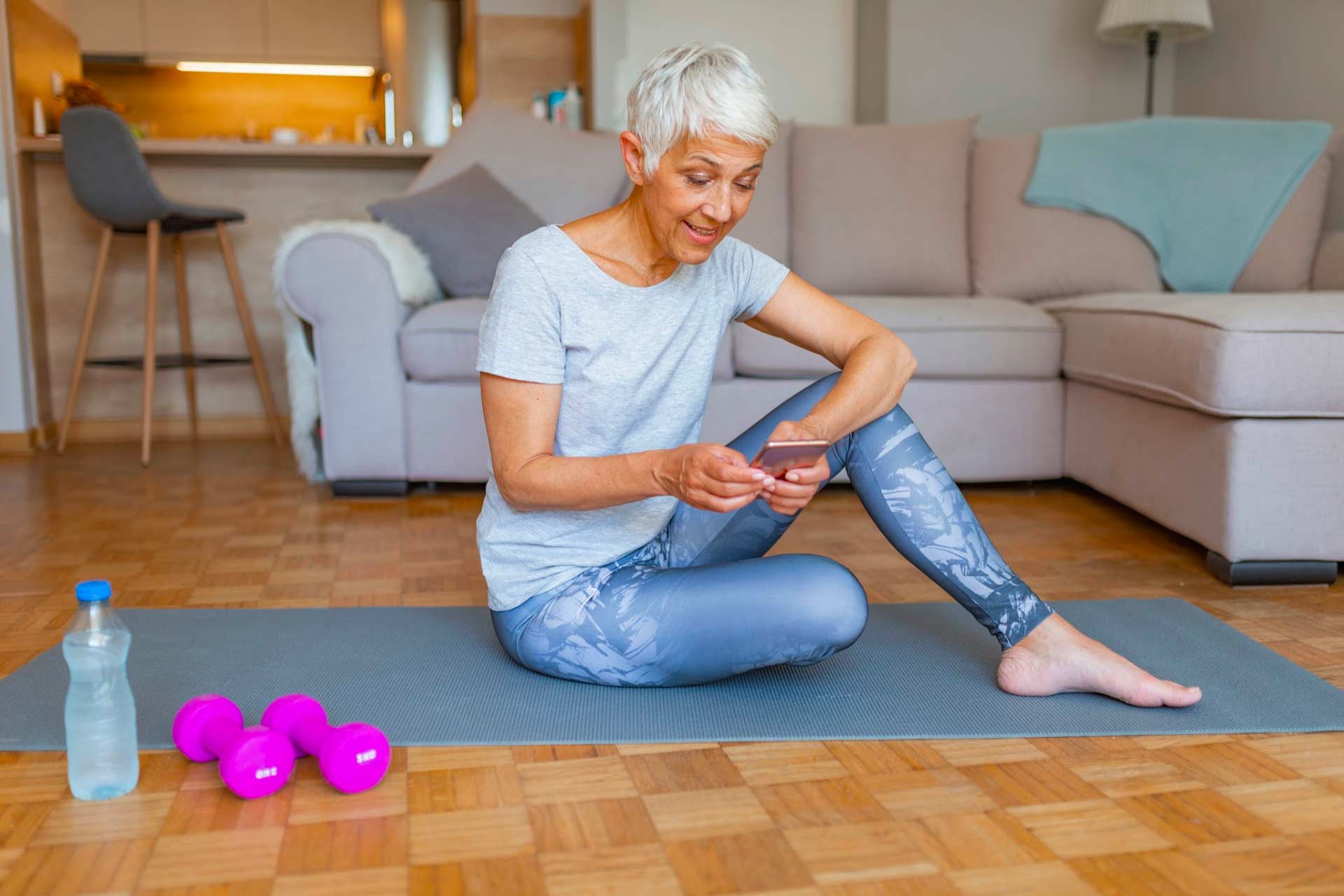
Helping You Find the Best Cannabis Product for Insomnia and Sleep
Our Leaf nurses are knowledgeable about the unique challenges that seniors face in getting a good night’s sleep. Our goal is to provide balanced education and clinically-sound guidance that is specific to your needs and goals. Our commitment is to you—the consumer—not to a particular product or company.
Call our anonymous hotline for free at 844-LEAF411 (844-532-3411) or chat us from the Leaf411.org homepage during hotline hours for help with your cannabis questions.
The Leaf411 cannabis nurse hotline provides free, anonymous education and directional support to the general public about the safe use of legal cannabis. We partner with select business members who meet our rigorous standards to extend our education and outreach efforts.
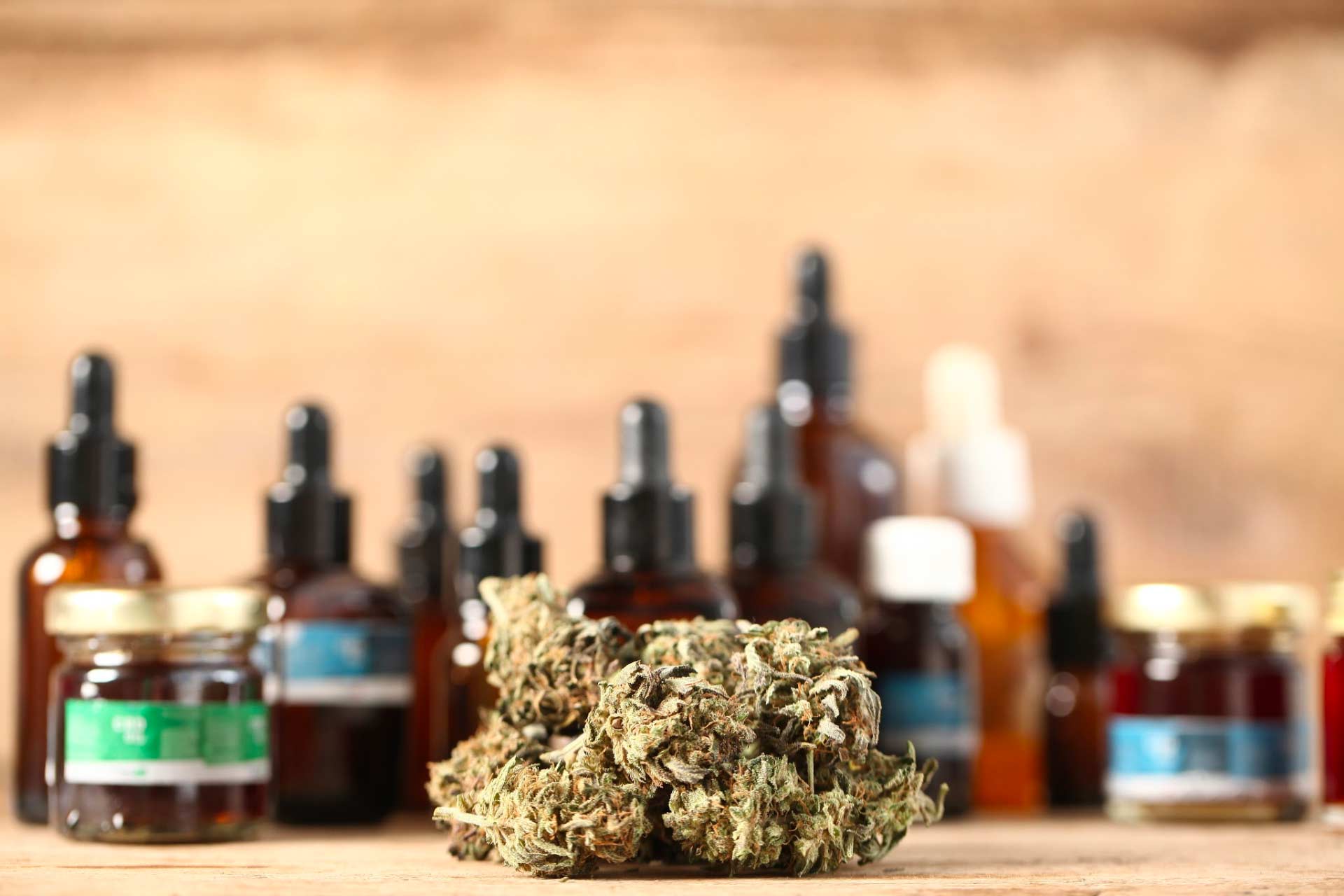
Low-Dose Cannabis Options for Seniors
The cannabis market has responded to the growing popularity of microdosing by producing low-dose edibles and tinctures that make it easy to find the right dose. Many of these products are available in both THC versions as well as CBD:THC ratios.
Among our Leaf411 supporting members, Ripple offers a range of low-dose dissolvable powders that can be added to beverages or food or sprinkled directly on your tongue. Our member Wana Brands also provides low-dose vegan-friendly gummies, including new fast-acting gummies that take effect on average within 5-15 minutes. Medically Correct is another of our supporting members that is developing low-dose products tailored to different needs, including the recently launched Quiq brand, also designed for fast onset. Also, our supporting member Altus produces the Lucky Edibles micro-tart line with each tart containing only 2 mg THC.
Fast-acting products like Ripple, Wana and Quiq are ideal for the person who has trouble falling asleep versus staying asleep. Something that you swallow is vital because these products tend to last 6-8 hours in your system, providing a longer sleep cycle than inhaled products that typically last about 2-4 hours. Gummies and tablets can be an excellent choice since they tend to be easier to cut into small pieces versus a chocolate that may crumble.
It’s important to always pay attention to the dose size listed on product packaging. For edibles, in particular, there’s not one standard size or dose. One brand might produce 10 mg THC gummies, while a different brand’s gummies are 5 mg. Products like THC-infused candy bars contain multiple doses, typically with each square serving as a separate dose. Likewise, cannabis tinctures will list a dose on the bottle which you can measure out using the bottle dropper.
Your New Year’s Resolutions – And How Cannabis Might Help
Medically reviewed by Katherine Golden, RN
Written by Denise Rustning
Look at the top New Year’s resolutions and you probably won’t be surprised. Most goals are focused on healthy choices—eating better, sleeping more, exercising. At their core, our resolutions are about finding better balance in our lives.
You might be surprised to learn that legal cannabis and hemp CBD can support your goals for better balance. The key is to use these products in moderation together with other positive lifestyle changes.

You Have an Endocannabinoid System – And It’s Made for Balance!
Your body already has a built-in system for maintaining internal balance (also called homeostasis)—the endocannabinoid system (ECS). This system exists in humans and most animals. It plays an important role in regulating metabolism, sleep, mood, and immunity, along with other functions.
Your body’s ECS contains two types of cannabinoid (CB) receptors: CB1 and CB2.
- CB1 receptors are found in your central nervous system—primarily your brain and spine. These receptors play a role in memory, behavior, appetite, motor control, and perception of pain.
- CB2 receptors exist throughout the body, helping to control inflammation and immune response.
Your body makes endocannabinoids which bind to the CB1 and CB2 receptors, signaling when your body’s system needs to take action to maintain or restore internal balance.
You can also use products which contain cannabinoids that interact with these same CB1 and CB2 receptors to help bring balance.
There are many different cannabinoids. These include cannabidiol, better known as CBD, and tetrahydrocannabinol, or THC. Both are present in cannabis. THC provides the “high” that many people associate with cannabis, while CBD doesn’t have any Intoxicating effects.
When thinking about the connection between your ECS and cannabis, it’s helpful to look at how you already use medicines to help your body. For example, your body generates pain-killing endorphins in response to pain, but you can also take ibuprofen to reduce pain and inflammation. With cannabis, the difference is that endocannabinoids (produced by your body) and cannabinoids (produced by the cannabis plant) are very similar to one another, which minimizes unwanted side effects.
Kickstarting Your Resolutions with a Good Night’s Sleep
Better sleep may not be on your list of New Year’s resolutions. However, being well-rested will definitely help you achieve your goals!

While many of us get the recommended amount of sleep each night, the quality of that sleep isn’t great for a lot of folks. The National Sleep Foundation reports that over a third of Americans report low-quality sleep.
Many people are discovering that cannabis and CBD hemp products help them relax, fall asleep, and wake up more well-rested. However, finding a product that works for you may take time, and the options can feel overwhelming!
If you are interested in using flower (the plant buds), start with indica-dominant or hybrid cannabis strains that are known to promote good sleep. These strains also contain beneficial plant compounds called terpenes that help with sleep as well.
Cannabis edibles designed for sleep are also an appealing option for many people. While edibles take longer to kick in than smoking or vaping, their effects also last longer. This means that if you wake up in the middle of the night to use the restroom, you might feel unexpectedly high. Edibles also have a reputation for causing brain fog in some people when they wake up, though this isn’t the case for everyone. Timing is key when consuming your product. Our nurses at Leaf411 can help guide you in the right direction for the best edible dosage and timing.
Also, you’ll want to check the label on any edibles or tinctures for the full list of ingredients. Manufacturers sometimes add melatonin, valerian or other herbs to boost their product’s sleep-inducing power. It’s up to you to decide whether those added ingredients are needed or not.
Our founding members at 1906 have put exhaustive research and refinement into their formulation, Midnight, because sleep issues are one of the most prevalent health problems Americans face. Midnight’s key ingredient, corydalis, has been used for millennia, and works in several crucial ways which maybe why it’s 1906’s best-selling product!
Cannabis plays a useful role in improving sleep quality, though too much THC and CBD can be counterproductive, increasing alertness or anxiety, or leaving you feeling groggy the following day. If you experience any of these symptoms, you may want to look for a product with lower THC and CBD concentrations or try CBD hemp products instead.
Some people prefer products that don’t contain THC, either due to employment-related concerns with drug testing, anxiety or personal preference. CBD isolate products provide a great alternative—but make sure you ask for a COA (Certificate of Analysis) prior to purchasing to ensure it has zero THC.
It’s important to note that CBD is not a sedative. It will not knock you out like a prescription sleep medication. Instead, CBD’s power comes from its potential to reduce anxiety and pain while also helping to regulate sleep. Hemp-based products are widely available online and in retail stores, eliminating the need to visit a dispensary (though many dispensaries may carry CBD products as well). Remember to look for reputable manufacturers who provide COAs to back up their product quality.
Our founding member Altus’s mission is to empower you to make the most educated and personal choice when selecting a cannabis product. They created helpful Pillars to categorize their products based on users’ needs. Their Ritual products are low-dose thc or non-intoxicating products designed for daily lifestyle needs. That includes maintaining endocannabinoid system balance, managing minor issues, and helping to get better rest.
If you’ve ever talked to our Leaf411 nurses, you’ll know that cannabis is only part of the picture when it comes to better sleep. We also encourage you to look at underlying issues and bedtime habits that may be keeping you up at night. Even the strongest indica can only do so much, if your nighttime routine includes scrolling through drama-filled threads on Twitter, Facebook or Instagram
Our Leaf411 hotline nurses are happy to discuss the pros and cons of different cannabis sleep products with you. Call our free, anonymous hotline at 844-LEAF411 (844-532-3411) for guidance specific to your needs.
CBD-Powered Workout Recovery
Exercise tops many peoples’ lists of resolutions. Sadly, it’s a resolution that many people quickly abandon for well-known reasons: the goal isn’t specific enough; it’s not stated positively; or it doesn’t answer the “why”—that is, why the goal is important to you. Many articles provide helpful tips for sticking with your exercise goals (like habit tracking or setting specific goals or identifying why you’re doing it).
We have an additional suggestion for keeping your exercise resolutions: CBD. Waking up early on cold, dark winter mornings is hard enough without fighting against soreness from the previous days’ workout. Many professional athletes use CBD products for pain and post-game recovery. You don’t need to be a pro player to tap into the benefits of CBD, though!
Our founding members over at Arcanum have been dedicated to producing products that complement active lifestyles. They were the first company to sponsor a professional sports team in the United States and know a thing or two about recovery!
Arcanum Edge’s Sarco Freeze topical cooling gel comes in two different strengths, and combines CBD with arnica, menthol and other herbs to provide immediate post-workout relief while also soothing sore muscles. Sarco Freeze received a positive review by the Athletes for Care Tastemakers program, which is made up of professional athletes.
They also offer Sarco Skin, the first CBD and menthol-infused kinesiology tape and The Coil family of tinctures which are terpene-infused for more benefits and bioavailability.
Arcanum Edge’s best-selling product is The Quill transdermal gel delivery pen. The Quill provides patented transdermal delivery of a precise microdose of full spectrum extract and terpenes. Leaf411 is proud to support Arcanum Edge as a trusted source for performance-driven CBD products. Arcanum Edge products are third-party tested with their COAs available online. They also provide a 30-day, 100% money back guarantee.
Out of Balance: Too Much Cannabis?
Cannabis is a tool, not a magic cure-all. While we enthusiastically support the benefits that this plant provides, we also caution that you can overdo it with any medicine, including cannabis. If you would like help cutting down on your marijuana use or switching to different types of products (for example, switching from smokable flower to edibles), our Leaf411 cannabis-trained nurses can help by providing non-judgmental, balanced guidance. We also provide resources at our online library.
Are you interested in exploring cannabis or hemp CBD’s health benefits in 2020, but not sure where to start? Our nurses can help! Call our free, anonymous hotline at 844-LEAF411 (844-532-3411).
The Leaf411 cannabis nurse hotline provides free, anonymous education and directional support to the general public about the safe use of legal cannabis. We partner with select business members who meet our rigorous standards to extend our education and outreach efforts.
